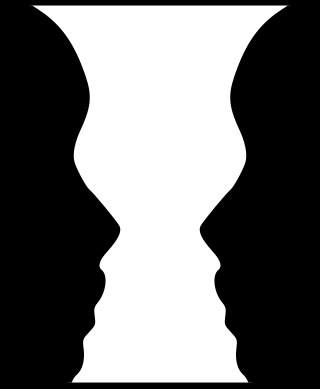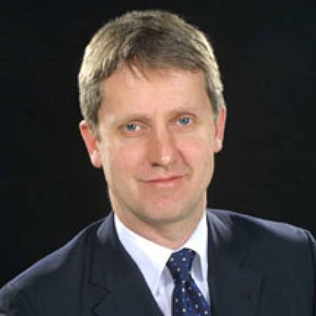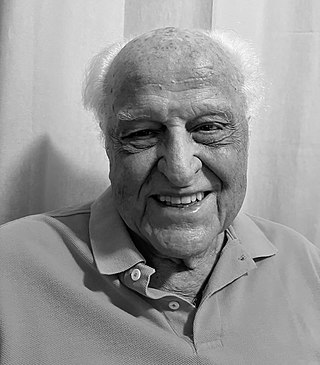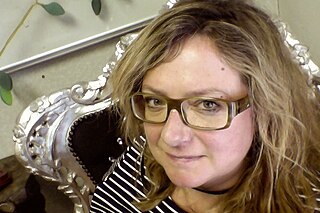
Perception is the organization, identification, and interpretation of sensory information in order to represent and understand the presented information or environment. All perception involves signals that go through the nervous system, which in turn result from physical or chemical stimulation of the sensory system. Vision involves light striking the retina of the eye; smell is mediated by odor molecules; and hearing involves pressure waves.

Attention is the concentration of awareness on some phenomenon to the exclusion of other stimuli. It is a process of selectively concentrating on a discrete aspect of information, whether considered subjective or objective. William James (1890) wrote that "Attention is the taking possession by the mind, in clear and vivid form, of one out of what seem several simultaneously possible objects or trains of thought. Focalization, concentration, of consciousness are of its essence." Attention has also been described as the allocation of limited cognitive processing resources. Attention is manifested by an attentional bottleneck, in terms of the amount of data the brain can process each second; for example, in human vision, only less than 1% of the visual input data can enter the bottleneck, leading to inattentional blindness.
Gestalt psychology, gestaltism, or configurationism is a school of psychology and a theory of perception that emphasises the processing of entire patterns and configurations, and not merely individual components. It emerged in the early twentieth century in Austria and Germany as a rejection of basic principles of Wilhelm Wundt's and Edward Titchener's elementalist and structuralist psychology.

Wishful thinking is the formation of beliefs based on what might be pleasing to imagine, rather than on evidence, rationality, or reality. It is a product of resolving conflicts between belief and desire. Methodologies to examine wishful thinking are diverse. Various disciplines and schools of thought examine related mechanisms such as neural circuitry, human cognition and emotion, types of bias, procrastination, motivation, optimism, attention and environment. This concept has been examined as a fallacy. It is related to the concept of wishful seeing.
Ecological psychology is the scientific study of perception-action from a direct realist approach. Ecological psychology is a school of psychology that follows much of the writings of Roger Barker and James J. Gibson. Those in the field of Ecological Psychology reject the mainstream explanations of perception laid out by cognitive psychology. The ecological psychology can be broken into a few sub categories: perception, action, and dynamical systems. As a clarification, many in this field would reject the separation of perception and action, stating that perception and action are inseparable. These perceptions are shaped by an individual's ability to engage with their emotional experiences in relation to the environment and reflect on and process these. This capacity for emotional engagement leads to action, collective processing, social capital, and pro environmental behaviour.

Figure–ground organization is a type of perceptual grouping that is a vital necessity for recognizing objects through vision. In Gestalt psychology it is known as identifying a figure from the background. For example, black words on a printed paper are seen as the "figure", and the white sheet as the "background".

Anne Marie Treisman was an English psychologist who specialised in cognitive psychology.
Inattentional blindness or perceptual blindness occurs when an individual fails to perceive an unexpected stimulus in plain sight, purely as a result of a lack of attention rather than any vision defects or deficits. When it becomes impossible to attend to all the stimuli in a given situation, a temporary "blindness" effect can occur, as individuals fail to see unexpected but often salient objects or stimuli.
Linda B. Smith is an American developmental psychologist internationally recognized for her theoretical and empirical contributions to developmental psychology and cognitive science, proposing, through theoretical and empirical studies, a new way of understanding developmental processes. Smith's works are groundbreaking and illuminating for the field of perception, action, language, and categorization, showing the unique flexibility found in human behavior. She has shown how perception and action are ways of obtaining knowledge for cognitive development and word learning.
Visual search is a type of perceptual task requiring attention that typically involves an active scan of the visual environment for a particular object or feature among other objects or features. Visual search can take place with or without eye movements. The ability to consciously locate an object or target amongst a complex array of stimuli has been extensively studied over the past 40 years. Practical examples of using visual search can be seen in everyday life, such as when one is picking out a product on a supermarket shelf, when animals are searching for food among piles of leaves, when trying to find a friend in a large crowd of people, or simply when playing visual search games such as Where's Wally?

Jonathon Stevens "Jon Driver" was a psychologist and neuroscientist. He was a leading figure in the study of perception, selective attention and multisensory integration in the normal and damaged human brain.
Some of the research that is conducted in the field of psychology is more "fundamental" than the research conducted in the applied psychological disciplines, and does not necessarily have a direct application. The subdisciplines within psychology that can be thought to reflect a basic-science orientation include biological psychology, cognitive psychology, neuropsychology, and so on. Research in these subdisciplines is characterized by methodological rigor. The concern of psychology as a basic science is in understanding the laws and processes that underlie behavior, cognition, and emotion. Psychology as a basic science provides a foundation for applied psychology. Applied psychology, by contrast, involves the application of psychological principles and theories yielded up by the basic psychological sciences; these applications are aimed at overcoming problems or promoting well-being in areas such as mental and physical health and education.

David LaBerge is a neuropsychologist specializing in the attention process and the role of apical dendrites in cognition and consciousness.
The Troland Research Awards are an annual prize given by the United States National Academy of Sciences to two researchers in recognition of psychological research on the relationship between consciousness and the physical world. The areas where these award funds are to be spent include but are not limited to areas of experimental psychology, the topics of sensation, perception, motivation, emotion, learning, memory, cognition, language, and action. The award preference is given to experimental work with a quantitative approach or experimental research seeking physiological explanations.
Broadbent's filter model is an early selection theory of attention.
Object-based attention refers to the relationship between an ‘object’ representation and a person’s visually stimulated, selective attention, as opposed to a relationship involving either a spatial or a feature representation; although these types of selective attention are not necessarily mutually exclusive. Research into object-based attention suggests that attention improves the quality of the sensory representation of a selected object, and results in the enhanced processing of that object’s features.
Automatic and controlled processes (ACP) are the two categories of cognitive processing. All cognitive processes fall into one or both of those two categories. The amounts of "processing power", attention, and effort a process requires is the primary factor used to determine whether it's a controlled or an automatic process. An automatic process is capable of occurring without the need for attention, and the awareness of the initiation or operation of the process, and without drawing upon general processing resources or interfering with other concurrent thought processes. Put simply, an automatic process is unintentional, involuntary, effortless, and occurring outside awareness. Controlled processes are defined as a process that is under the flexible, intentional control of the individual, that the individual is consciously aware of, and that are effortful and constrained by the amount of attentional resources available at the moment.
Perceptual load theory is a psychological theory of attention. It was presented by Nilli Lavie in the mid-nineties as a potential resolution to the early/late selection debate.

Sophie Kerttu Scott is a British neuroscientist and Wellcome Trust Senior Fellow at University College London (UCL). Her research investigates the cognitive neuroscience of voices, speech and laughter particularly speech perception, speech production, vocal emotions and human communication. She also serves as director of UCL's Institute of Cognitive Neuroscience.
Barbara Dosher is an American scientist and academic specializing in neurology of human memory and attention processes. She is the former dean of the School of Social Sciences and a Distinguished Professor of Cognitive Sciences at University of California, Irvine. She is also the director of the Memory Attention Perception Lab at UC Irvine. Dosher is a member of the National Academy of Sciences. Dosher received the 2018 Atkinson Prize in Psychological and Cognitive Sciences.








